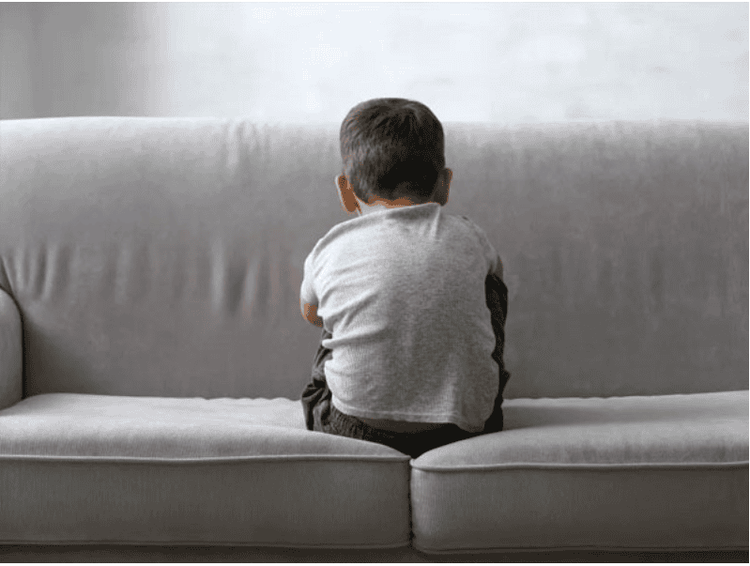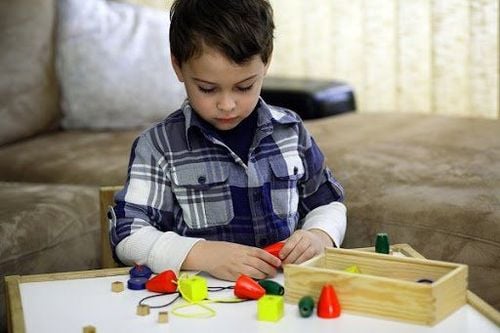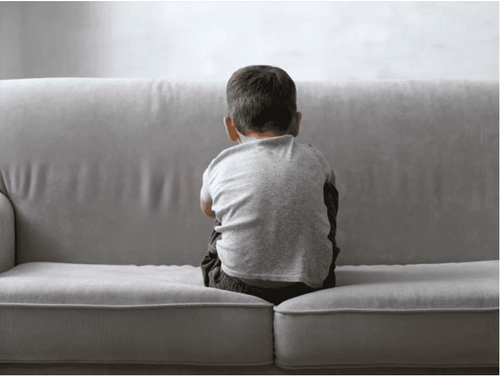This is an automatically translated article.
Article written by Doctor Ho Thi Anh Thu - Neonatologist, Department of Pediatrics - Neonatology - Vinmec Nha Trang International General Hospital
Autism spectrum disorder is a medical condition that impairs behavior, ability to communicate and interact with others. Autism spectrum disorder can be mild or severe. The cause is currently unknown.
1. Main symptoms of autism spectrum disorder
When a child has an autism spectrum disorder, the child presents with symptoms in childhood. Sometimes symptoms don't appear until school age. Signs of autism spectrum disorder include problems in 2 main areas:
1.1 Social interaction and communication Children with autism spectrum disorder often have problems related to communication. Children often do not know how to read facial expressions and tend to avoid eye contact. In addition, children often do not like to be touched. Many young children with autism spectrum disorder do not enjoy playing or interacting with others.
Children with autism spectrum disorder often take longer than other children to learn to speak. Some never learned to speak. However, language is not the only thing affected. Parents of children with autism spectrum disorder sometimes think the child is deaf.
Children who are deaf and cannot speak again find other ways to communicate, such as through hand movements. But children with autism spectrum disorder do not. Children do not seem interested in communicating with people.

1.2 Interest in certain things Children with autism spectrum disorder tend to show a strong interest in certain things, but little interest in anything else. Young children can focus entirely on things that spin or shine and ignore almost everything else. Older children may become preoccupied with one topic, such as weather, numbers or sports...
Children with autism spectrum disorders also tend to have routines that they must follow exactly. For example, a child may need to eat specific foods in a particular order or follow the same route from one place to another - all the time. If these habits are broken, the child becomes upset.
In addition, manifestations of other autism spectrum disorders include:
Not pointing at objects to show interest (pointing at a passing plane). Do not look at objects when others point at them. Having trouble related to others or having no interest in others. Avoid eye contact and prefer to be alone. Having trouble understanding other people's feelings or expressing them. Does not like to be hugged or cuddled or can only cuddle when he wants to. Seems to not know when others talk to the child but responds to other sounds. Repeating words or phrases, or repeating words or phrases in place of normal language. Difficulty expressing child's needs verbally or with body language. Do not play "pretend" role play (pretend to feed the doll). Repeat the action several times. Having trouble adapting when a routine changes. Unusual reactions to senses such as smell, taste, sight, feel, or sound. Loss of skills the child used to have (eg, stop saying words he used to use).

2. When should I take my child to a doctor or psychologist?
Take your child to the doctor if you see any of the signs of autism spectrum disorder listed above. You can also test your child's hearing. That way you can tell if hearing problems are causing some of the symptoms you see in your child.
3. Diagnosis of Autism Spectrum Disorder
If a child has symptoms of autism spectrum disorder, the child is usually evaluated by a team of professionals with expertise in the diagnosis and management of the condition. This team usually includes a child psychologist, developmental behavioral pediatrician, neurologist, psychiatrist, speech therapist, and other professionals.
The evaluation usually includes a medical history, a complete history (of the child and family), a physical exam, a neurological exam, and a check of the child's social, language, and cognitive skills. Additionally, parents will have time to discuss their child's behavior and any other concerns.
The purposes of the assessment include:
Determine if the child has an autism spectrum disorder or if another condition may be causing the child's symptoms. Determine if the child has any medical problems related to autism spectrum disorder that require evaluation or treatment. Determine your child's fitness and activity level. If your child has an autism spectrum disorder, it's important that he's diagnosed as soon as possible. Some problems caused by autism spectrum disorder can be improved with early detection.

4. How is autism treated?
The right treatment for autism spectrum disorder depends on the child's age, severity, and whether the child has any other medical problems. Autism spectrum disorder cannot be cured, but children can often overcome many communication and socialization problems.
Psychological Clinic - Vinmec Times City International General Hospital has the function of examining, consulting and outpatient treatment of psychological and mental health problems. With modern equipment and a team of highly specialized doctors, the Psychology clinic - Vinmec Times City International General Hospital is capable of deploying psychological tests and intensive psychotherapy to serve the public. medical examination and treatment.
Psychology Clinic is currently cooperating with leading professors and experts of Hanoi Medical University, frontline hospitals in the country and internationally to diagnose and treat in order to bring effective medical examination and treatment. best cure.
Location at Vinmec Times City: Room 4063, 4th floor - Department of General Internal Medicine
Clinic working schedule from 8:00 am - 12:00 pm, afternoon 13:00 - 17 pm
Please dial HOTLINE for more information or register for an appointment HERE. Download MyVinmec app to make appointments faster and to manage your bookings easily.














